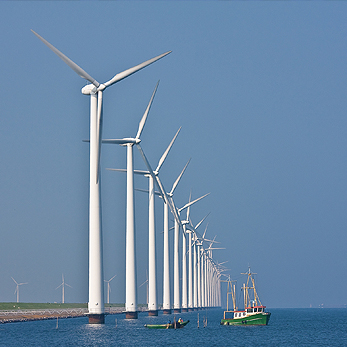What happens next?
Implementing and enforcing existing measures are the priorities
There has been significant progress in the development of measures to address pressures from shipping on the marine environment. The implementation of these measures, especially MARPOL Annexes I to VI, and their enforcement is essential to reducing pollution from ships.
OSPAR should promote the strict implementation of existing measures and, where appropriate, should seek to influence those international organisations with the competence to improve enforcement of shipping regulations at sea. OSPAR should assess the effectiveness of these measures through improved data collection on, and continued monitoring of, key pressures and impacts of shipping on the marine environment.
OSPAR should promote action by OSPAR countries within the framework of the International Maritime Organization (IMO):
- To implement the ‘clean ship’ approach agreed under the Gothenburg Declaration in maritime and environmental policies.
- To develop improved practices and innovative technologies for ships in port and at sea to help reduce current and future emissions of greenhouse gases, NOX, SOX and particulate matter, taking into account the relevant IMO regulations.
- To provide effective port reception facilities for litter and oily waste and apply best practice as recommended by the IMO.
- To implement the global ban on the use of organotin compounds in anti-fouling systems in ships.
OSPAR should further assess effects of ship noise and ship strikes on marine mammals in cooperation with the relevant international organisations, and work with the IMO in developing and implementing mitigation strategies.
A range of initiatives is needed to mitigate effects
OSPAR countries should undertake the following range of initiatives to mitigate the effects of shipping in the North-East Atlantic:
- Cooperate in the field of oil spill prevention and implement, as soon as possible, the IMO regulations aiming at reducing the risk of collisions and grounding, and the associated impacts from accidental spills and losses of cargo.
- Cooperate in contingency planning and counter-pollution responses. This should be done through the Bonn Agreement in Region II; through the development of response capacities and international cooperation agreement(s) in the Arctic; and, once entered into force, through the Lisbon Agreement (Cooperation Agreement for the Protection of the Coasts and Waters of the North-East Atlantic against Pollution) in Region IV and some adjacent areas of Region V.
- Apply the global and regional measures for preventing the spread of non-indigenous species via ballast water. The D1 Ballast Water Exchange Standard should be applied in the North-East Atlantic in the interim period before the more stringent D2 Standard comes into force.
- Ratify the IMO Ballast Water Convention and work to promote its entry into force. OSPAR countries should also assess the risk of introducing non-indigenous species so that appropriate regional and national preventive measures can be implemented.
- Consider the development of systems to collect and store accurate and comparable data that can be used to assess the impact of shipping on the marine environment.
- Cooperate closely with respect to shipping in the Arctic and promote related work by other international forums, particularly the IMO and the Arctic Council. Priority issues include the update and mandatory application of the IMO Guidelines for ships operating in Arctic ice-covered waters (the ‘Arctic Guidelines’) and, where necessary, the designation of ‘Special Areas’ or ‘Particularly Sensitive Sea Areas’, and better passenger ship safety.

